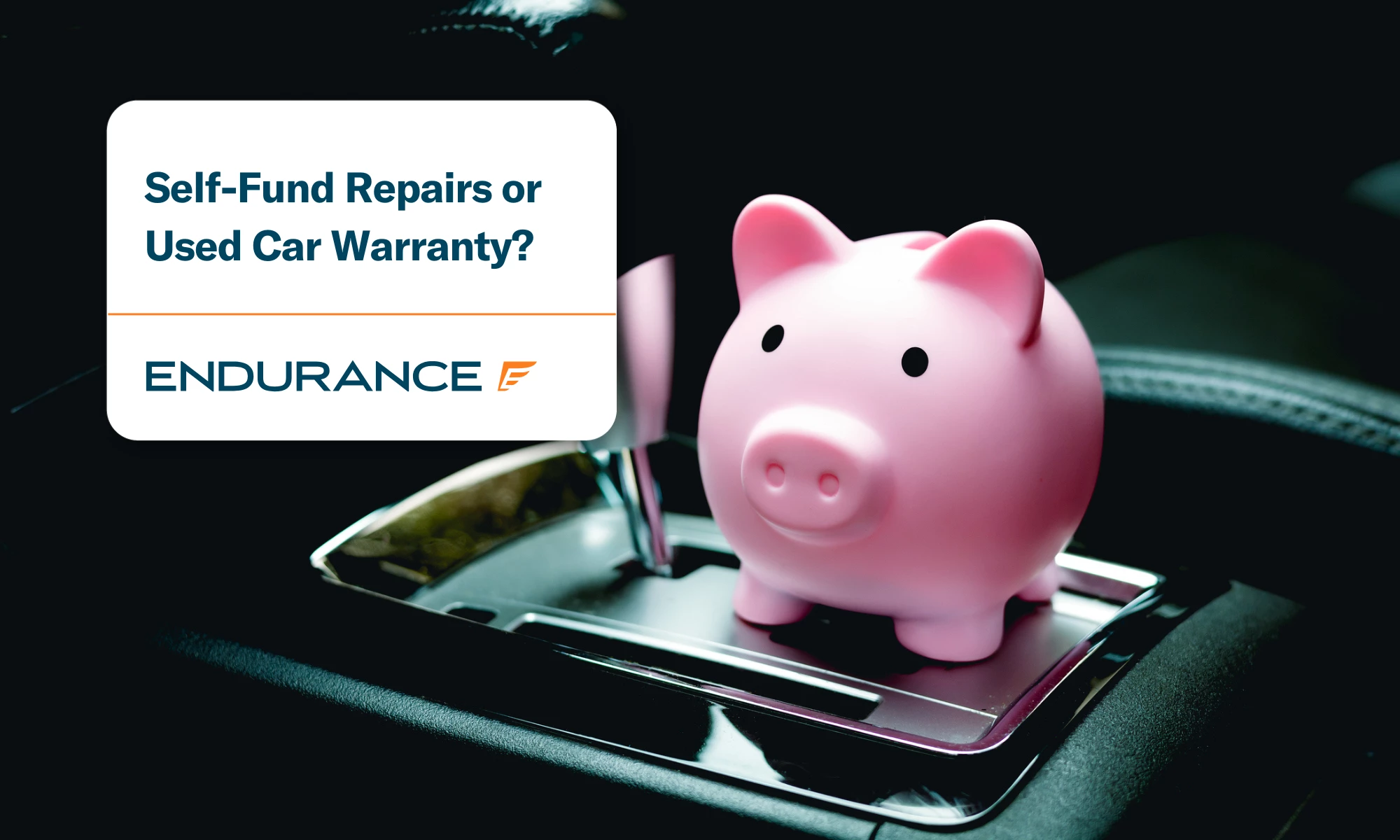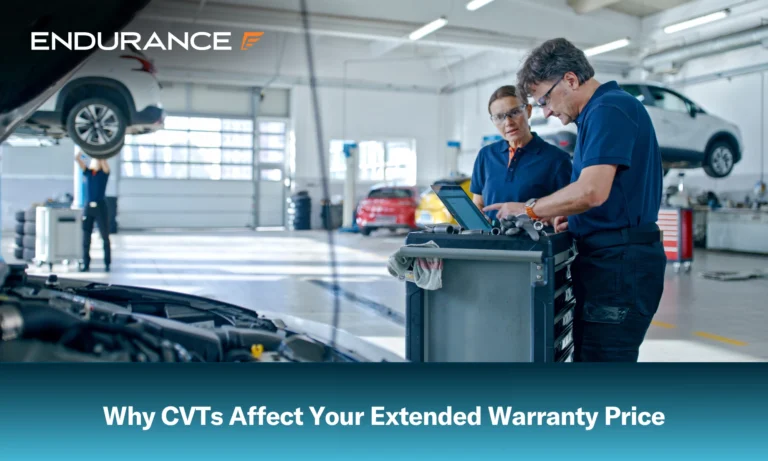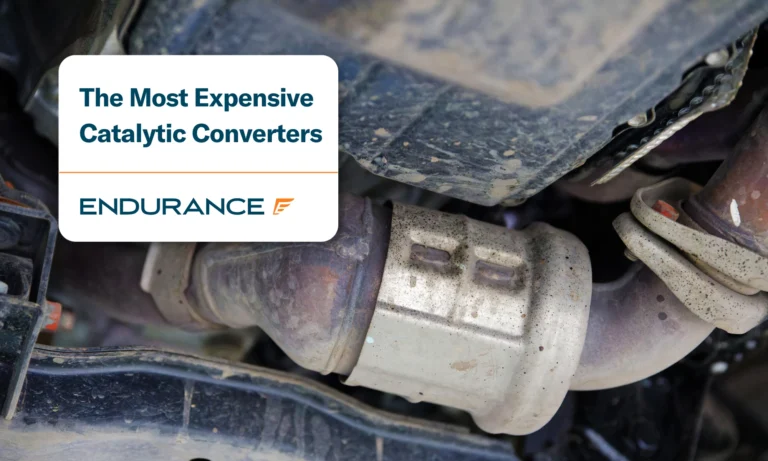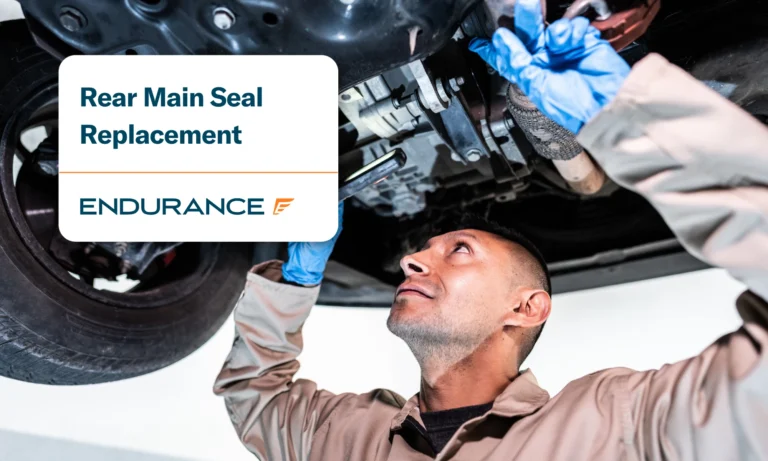Should You Self-Fund Repair Costs or Get a Used Car Warranty?

While saving upfront for car repairs gives you flexibility, it comes with risk. Major breakdowns can cost thousands and strike before you’ve built up enough funds. A used car warranty offers reliable coverage for unexpected repairs, predictable monthly payments, and added benefits like roadside assistance and rental car reimbursement. For many drivers, it’s a smarter way to protect their budget and stay prepared for the road ahead.
Keep reading as we break down everything you need to know about used car warranties, examine typical major repairs, review repair shop prices, and look at the ins and outs of self-funding.
What Is a Used Car Warranty and How Does It Work?
A used car warranty is another name for a vehicle service contract or extended car warranty. These are all terms for a paid plan that covers specific repairs after the factory warranty has expired. While auto insurance protects against collisions, theft, or storm damage, an extended warranty safeguards against mechanical breakdowns. A third-party company, a car dealership, or an automaker can sell a used car warranty.
These auto protection plans usually come with different service levels. At a minimum, a base used car warranty covers the powertrain: the engine, transmission, and drive axles. Many companies offer intermediate programs that protect major systems like electrical, steering, brakes, suspension, and air conditioning. At the top end, an exclusionary plan provides protection most similar to the manufacturer’s warranty that accompanies a new car. The better the coverage, the higher the cost.
Before selecting any used car warranty, you’ll want to research the terms and conditions. The fine print specifies what’s covered and what’s not. You’ll also learn how the claims process is handled, what costs you’re responsible for (like a deductible), and where you can take the car for covered repairs. Most service contracts have exclusions for pre-existing conditions, vehicle misuse, and repairs caused by an accident.
The True Cost of Common Car Repairs
According to Kelley Blue Book (KBB), the average car repair visit costs $838, a not insignificant sum. The figure might fall within what some car owners can pay out of pocket, but the challenge is that this is an average amount. Repairs can easily run into the thousands. For instance, data compiled from claims paid by Endurance Warranty shows that the typical transmission replacement costs $4,691.61, while major engine work averaged $7,627.26. These are significant outlays, no matter how much money you have in the bank.
Using RepairPal’s highest estimates, let’s look at the cost of common replacement repairs for popular vehicles.
| Honda Accord | Toyota RAV4 | Ford F-150 | Chevrolet Equinox | |
| Alternator | $920 | $814 | $822 | $778 |
| Air Conditioning Compressor | $1,507 | $1,515 | $1,057 | $1,251 |
| Water Pump | $954 | $703 | $937 | $1,356 |
| Powertrain Control Module | $1,172 | $1,122 | $1,049 | $746 |
| Fuel Pump | $1,520 | $1,416 | $1,254 | $1,582 |
Keep in mind that these repair costs involve mainstream models. Getting high-end and luxury models back on the road usually costs more. For example, replacing a fuel pump in an Audi A4 can cost as much as $1,890, almost 25% more than in a Honda Accord. Even so, an Accord owner who’s set aside $100 per month for a year and is facing this type of repair would deplete their emergency fund and still be responsible for the difference.
The repairs highlighted in the table don’t involve replacing a major component like an engine or transmission. As mentioned, such work costs thousands more and would only be partially covered by a modest car repair fund.
Self-Funding Repairs: What It Means and Where It Falls Short
Self-funding, sometimes called self-insuring, involves banking your own money to pay for car repairs instead of buying an extended warranty. It can make sense for disciplined savers who don’t want to deal with filing a claim or paying attention to contract terms. It’s a simple concept involving regularly depositing a specific amount into a separate account. Over time, you create a financial cushion for repairs.
Yet, this self-funding approach has its risks:
- You must be disciplined and avoid spending the accumulated funds on anything other than car repairs. A repair fund only works if it stays funded.
- Timing can be an issue, as repairs rarely happen on a set schedule. A $2,000 fund will only cover half of a $4,000 repair. If you want to get back on the road, you’re still responsible for the remainder.
- Even with well-funded repair savings, you might be reluctant to tap into the account, causing a delay with necessary service work that could make the problem worse and more expensive later.
Benefits of Buying a Used Car Warranty Instead
Applying that money towards a used car warranty offers numerous advantages over contributing to a repair fund and the related uncertainties. Let’s use a real-world scenario to illustrate this approach. You can save $100 every month for anticipated repairs or spend that money on essential extended warranty coverage.
For many cars, an Endurance Secure plan protects the engine, transmission, and drive axle assemblies. Stepping up to the Secure Plus program adds safeguards for the air conditioning system, steering system, and electrical components for a few dollars more.
This move makes sense for many car owners because of:
- Predictable Costs: Instead of worrying about the uncertainty of potential repairs, you’re only responsible for the monthly premium. Should a breakdown occur, the warranty provider pays for covered repairs. You may also have to pay a deductible, depending on your coverage terms.
- Risk Transfer: A vehicle service contract lets someone else (the warranty company) be responsible for most repair costs in case of significant car trouble.
- Potential Savings: One large claim can easily exceed the cost of the extended warranty plan.
- Peace of Mind: There’s significant comfort in knowing your vehicle is protected against worst-case scenarios.
- Convenience: Premium extended warranty companies enable covered repair work through a broad network of authorized shops. For example, Endurance lets its customers use any certified repair facility, including dealership service departments.
- Other Perks: Most extended warranties provide 24/7 roadside assistance, towing, rental car support, and trip interruption.
Frequently Asked Questions
Should I Get a Warranty on a Used Car?
Asking yourself, “Should I get a warranty on a used car?” is a legitimate question. The answer depends on your car, budget, and risk tolerance. Consider what a $1,000 repair would do to your financial situation. What if the total reaches $2,500? Would a repair bill totaling $5,000 or more be a disaster? If so, then a used car warranty can be a critical safety net.
What does a used car warranty cover that insurance doesn’t?
Car insurance protects against accidents, theft, vandalism, and weather damage. A used car warranty protects against mechanical breakdowns, such as engine or transmission trouble, or a bad air conditioning compressor. Some insurance companies offer separate mechanical breakdown insurance policies, but these are generally only available on newer vehicles.
Can I still get a warranty if my car has high mileage?
Yes, high mileage doesn’t automatically exclude a used car from being protected by an extended warranty. Some providers have special programs for high-mileage vehicles, including unlimited mileage programs focused more on the car’s age than its odometer. Endurance has plans designed specifically for these situations.
Is it better to save money instead of paying for a warranty?
It depends. Self-funding can save you money if you’re disciplined and your car is reliable. However, if you don’t have the discipline or the ability to absorb a big repair financially, a used auto warranty offers predictable costs and peace of mind.
Unmatched Used Car Warranty Protection
Driving without the benefit of a factory warranty on your car doesn’t have to be stressful. A vehicle service contract from Endurance can provide the protection you need and the comfort you want. Discover all your coverage options by requesting a FREE quote or visiting the Endurance online store to see your price and plan recommendations. Personalized coverage details are also available by contacting our plan advisors at (800) 253-8203.
The Endurance blog is ready with a vast library of expert-written articles. Learn about DIY repairs, maintenance advice, extended warranties, vehicle reviews, and more.













Dave is an automotive journalist combining a deep passion for cars, hands-on mechanical experience, and dealership insight. His writing primarily focuses on consumer auto advice and enthusiast pieces. A regular contributor to SlashGear.com and other leading automotive platforms, Dave earned his BA in Journalism from The George Washington University.